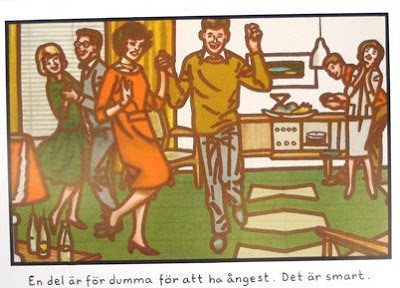>
“The greater part of what my neighbors call good I believe in my soul to be bad, and if I repent of anything, it is very likely to be my good behavior. What demon possessed me that I behaved so well?”
Like most people ever interested in politics, independence and philosophy I’ve come to check out H.D. Thoreau every once in a while. I first read Thoreau back in 1989, when I was 14. I read Civil Disobedience, or Resistance to Civil Government as was its original publishing name in 1849, and it completely seduced my mind. Some of the first words are there forever: ”That government is best that governs not at all”, as well as ”I ask for, not at once no government, but at once a better government”. I believe that’s what started my political awareness/interest, reading a 140 year old lecture and finding so much modern truth. When I started reading about Holocaust revisionism some ten years ago and the way these revisionists are put in prison for asking questions I immediately remembered this quote as well: ”Under a government which imprisons any unjustly, the true place for a just man is also in prison”.
Walden or Life In The Woods (1854), appeared to me some years later, and I remember being quite disappointed since it lacked the immediate “instructions” and guidance I was hoping to find back then. Sure, I got the message, but I was looking for action, not contemplation.
Now, having recently seen the stunning movie Into The Wild, I picked up Walden and studied it again, this time with so much joy. It was as inspirational as when I first read Civil Disobedience, but on a completely different level. I found it quite cool to realize that a lot of the stuff he’s writing about in Walden is where my ideas are right now. It took me another 14 years to arrive there, and now I really appreciate Thoreau’s great piece of art.
I wonder where I’ll be in another 14 years… I’ve got so much more reading to do. Must prevail!
Check this page for thorough information about the man and his works.
Some excerpts from Walden:
There is no odor so bad as that which arises from goodness tainted. It is human, it is divine, carrion. If I knew for a certainty that a man was coming to my house with the conscious design of doing me good, I should run for my life, as from that dry and parching wind of the African deserts called the simoom, which fills the mouth and nose and ears and eyes with dust till you are suffocated, for fear that I should get some of his good done to me — some of its virus mingled with my blood. No — in this case I would rather suffer evil the natural way. A man is not a good man to me because he will feed me if I should be starving, or warm me if I should be freezing, or pull me out of a ditch if I should ever fall into one. I can find you a Newfoundland dog that will do as much. Philanthropy is not love for one’s fellow-man in the broadest sense.
[…]
Some show their kindness to the poor by employing them in their kitchens. Would they not be kinder if they employed themselves there? You boast of spending a tenth part of your income in charity; maybe you should spend the nine tenths so, and done with it. Society recovers only a tenth part of the property then. Is this owing to the generosity of him in whose possession it is found, or to the remissness of the officers of justice?
Philanthropy is almost the only virtue which is sufficiently appreciated by mankind. Nay, it is greatly overrated; and it is our selfishness which overrates it.
[…]
I would not subtract anything from the praise that is due to philanthropy, but merely demand justice for all who by their lives and works are a blessing to mankind. I do not value chiefly a man’s uprightness and benevolence, which are, as it were, his stem and leaves. Those plants of whose greenness withered we make herb tea for the sick serve but a humble use, and are most employed by quacks. I want the flower and fruit of a man; that some fragrance be wafted over from him to me, and some ripeness flavor our intercourse. His goodness must not be a partial and transitory act, but a constant superfluity, which costs him nothing and of which he is unconscious. This is a charity that hides a multitude of sins. The philanthropist too often surrounds mankind with the remembrance of his own castoff griefs as an atmosphere, and calls it sympathy. We should impart our courage, and not our despair, our health and ease, and not our disease, and take care that this does not spread by contagion.
[…]
I believe that what so saddens the reformer is not his sympathy with his fellows in distress, but, though he be the holiest son of God, is his private ail. Let this be righted, let the spring come to him, the morning rise over his couch, and he will forsake his generous companions without apology. My excuse for not lecturing against the use of tobacco is, that I never chewed it, that is a penalty which reformed tobacco-chewers have to pay; though there are things enough I have chewed which I could lecture against. If you should ever be betrayed into any of these philanthropies, do not let your left hand know what your right hand does, for it is not worth knowing. Rescue the drowning and tie your shoestrings. Take your time, and set about some free labor.
Our manners have been corrupted by communication with the saints. Our hymn-books resound with a melodious cursing of God and enduring Him forever. One would say that even the prophets and redeemers had rather consoled the fears than confirmed the hopes of man. There is nowhere recorded a simple and irrepressible satisfaction with the gift of life, any memorable praise of God. All health and success does me good, however far off and withdrawn it may appear; all disease and failure helps to make me sad and does me evil, however much sympathy it may have with me or I with it. If, then, we would indeed restore mankind by truly Indian, botanic, magnetic, or natural means, let us first be as simple and well as Nature ourselves, dispel the clouds which hang over our own brows, and take up a little life into our pores. Do not stay to be an overseer of the poor, but endeavor to become one of the worthies of the world.
I read in the Gulistan, or Flower Garden, of Sheik Sadi of Shiraz, that “they asked a wise man, saying: Of the many celebrated trees which the Most High God has created lofty and umbrageous, they call none azad, or free, excepting the cypress, which bears no fruit; what mystery is there in this? He replied, Each has its appropriate produce, and appointed season, during the continuance of which it is fresh and blooming, and during their absence dry and withered; to neither of which states is the cypress exposed, being always flourishing; and of this nature are the azads, or religious independents. — Fix not thy heart on that which is transitory; for the Dijlah, or Tigris, will continue to flow through Bagdad after the race of caliphs is extinct: if thy hand has plenty, be liberal as the date tree; but if it affords nothing to give away, be an azad, or free man, like the cypress.”





